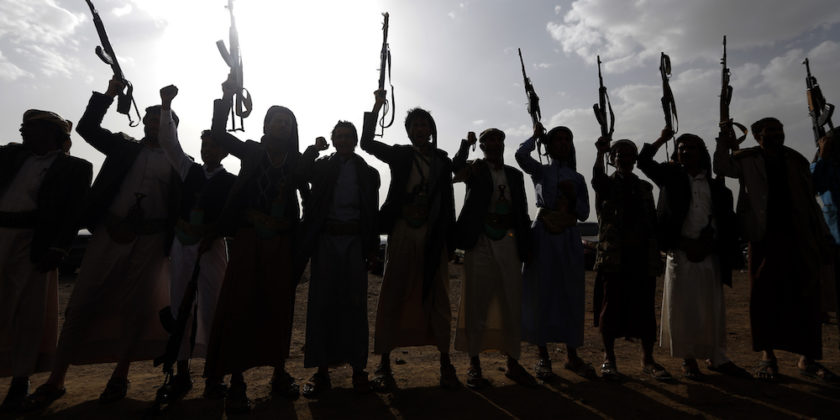Djibouti (HAN) Public Diplomacy & Regional Security News. The fighting next door between Yemen and Saudi Arabia has potential economic, sectarian, political, and security repercussions that merit intense regional intelligence cooperation with Djibouti and Somaliland.
World will see largest famine in decades if Saudi blockade not lifted in Yemen, UN warns
The incident served as a reminder of the unexpected ways in which the Yemeni war could impact Somalia and Djibouti’s stability, according to Geeska Afrika Online reporter in Djibouti. Djibouti and Sudan has become a direct player in the conflict through its support for armed and unarmed groups battling against Yemeni Houthi’s regime. Yet Saudi Arabia is also embroiled in the war in broader strategic terms, through its vulnerability to spillover along the miles border with Yemen. The United nations Security Council (UNSC) and NATO allies should watch these spillover effects closely, as they risk straining Region’s economy, accentuating its sectarian and political divisions, and compromising its overall stability.
According to the SIRAD institute’s regional security assessment, “Southern Djibouti’s economic integration with Ethiopia and Somalia’s Somaliland state was one of Djibouti’s major successes of the past Two decades”. Although the area’s overall volume of trade was minor compared to Ethiopia’s overall volume, it was an important factor in the economic development of a long-impoverished portion of the country.
United Nations aid chief Mark Lowcock warned that if a Saudi-led military coalition did not allow humanitarian aid access to Yemen then it would cause “the largest famine the world has seen for many decades with millions of victims.”
The Saudi-led military coalition fighting the Houthi regime in neighboring Yemen said on Monday it had closed all air, land and sea ports to the Arabian Peninsula country to stem the flow of arms to the Houthis from Iran.
The conflict in Yemen has dramatically reversed this trend. As security conditions on the southern red sea frontier deteriorated, Djibouti and Somaliland closed the sea border with Yemen to commercial traffic for ISIS or other Iranian rebel group to cross their borders into African continent. Meanwhile, Yemen Houthi regime has periodically blocked trade with Djibouti as well to protest Djibouti’s rapprochement with the GCC strategy. All of this has meant the closing of previously vibrant trade between southern Yemen and the northern Djibouti and Somaliland’s gulf of Aden route.
The Saudi move, is to worsen a humanitarian crisis in Yemen that according to the United Nations has pushed some seven million people to the brink of famine and left nearly 900,000 infected with cholera, which can accelate the human flex to neighbouring Djibouti and Somaliland. Lowcock, who visited Yemen late last month, briefed the U.N. Security Council behind closed doors at the request of Sweden. “I have told the council that unless those measures are lifted … there will be a famine in Yemen,” he told reporters. “It will be the largest famine the world has seen for many decades with millions of victims.”
The U.N. Security Council expressed concern about the humanitarian situation in Yemen, “The members of the Security Council emphasized … the importance of keeping all Yemen’s ports and airports functioning, including Hodeidah port, as a critical lifeline for humanitarian support and other essential supplies.”
The United States should work closely with Djibouti and Somalia’s regional states of Somaliland, Puntland and other member states to monitor the many ways in which the Yemeni conflict is spilling into Somalia waters or Djibouti territories. This includes offering closer intelligence cooperation against the Houthi rebels and rallying European governments to provide more help as well. Washington should also consider reviving the successful Somaliland, GCC and Somalia’s intelligence cooperation against the terrorist group, which stopped following the 2016 ASIS incidents in Puntland state. This could serve as a precursor to normalization of bilateral ties in the aftermath of the Somaliland elections. The United States should pay special attention to the rise of extremist of ISIS in Somaliland and Puntland, working with EU and Turkey to prevent piracy and terror violence against present and future NATO and EU deployment assistance in Somalia.
All rights reserved. For permission to republish or make other authorized use of this material, Contact us at HAN@geeskaafrika.com Geeska Afrika Online Copyright © 2017

Leave a Reply